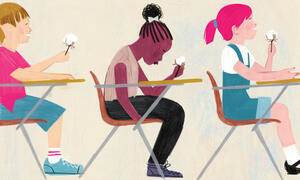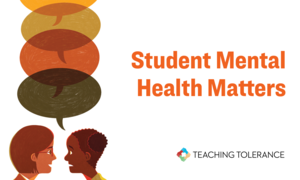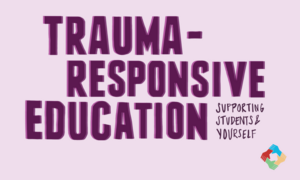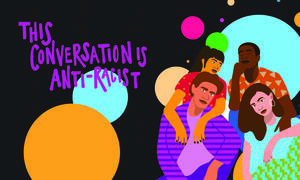Advocate for the Well-Being of Black Children
Anti-Blackness is pervasive and has material consequences for all people, including and especially Black children whose presence is often overlooked—and, ironically, villainized—in favor of all things that uphold white supremacy. These LFJ resources offer specific actions educators, parents, caregivers and communities can take to insist upon the well-being of Black children.

Partnering With Families to Support Black Girls

Stop Talking in Code: Call Them Black Boys

Ending Curriculum Violence
Observe Sexual Assault Awareness Month With Education and Support
When a young person experiences sexual assault, a survivor-centered approach—from parents, caregivers, educators and everyone involved in the survivor’s life—is essential. These LFJ resources, including a new article outlining strategies for supporting survivors and their families, offer information about ways to help.

Center Survivors: A Resource for Families and Educators in Responding to Sexual Violence

What If My Student Discloses a Sexual Assault?

Resources for Addressing Sexual Assault and Harassment in Class
Respond With Care in Support of Young People
People are continuously struggling to respond when traumatizing events occur. This time it’s the devastation in Mississippi following deadly tornadoes. For families, educators and community members who must respond to the needs of children as a traumatizing event unfolds, this new LFJ article and resources can help.

Student Mental Health Matters

Trauma-responsive Education: Supporting Students and Yourself
Working Toward Solidarity This Women's History Month
Let’s honor all women this Women's History Month by understanding how anti-Blackness, transphobia and white supremacy prevent unity. LFJ’s newest article examines how the Women’s March—with its high points and pitfalls—and the subsequent activism it inspired play a role in highlighting the precarious position of women’s autonomy and human rights, worldwide. These LFJ resources remind us that self-awareness, solidarity and self-care are all requirements in the fight for social justice.

The Women’s March: Protest and Resistance

Students Lose When Black Women Aren’t Supported

Laverne Cox
Reckoning With Honest History Through Ongoing Education
Young people aren't alone in seeking opportunities to learn honest history, and the classroom isn't the only location where such education can take place. In various community spaces—including virtual ones—many adults are also willing to do the work reckoning with our nation’s history of anti-Blackness and white supremacy, recognizing that past in the present and finding liberatory ways forward. These LFJ resources highlight possibilities for self-reflection and ongoing learning.

"Safe Saturday" Conversations About Race
